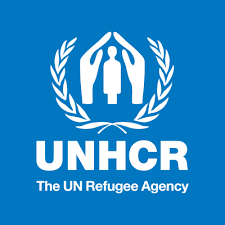With over 18 months into the conflict in Sudan, the number of people fleeing atrocities and widespread human rights violations continues to rise and most of the them are seeking refuge in Chad.
Since the start of the civil war between the army and paramilitary forces, more than 3 million of Sudan’s citizens have fled abroad. The United Nations High Commissioner for Refugees (UNHCR) expressed concern on Friday about the intensity of the violence between the warring parties, calling it “the worst civilian protection crisis the world has seen in decades,” while deploring the lack of international attention.
Thousands of lives are being “shattered by war and violence, far from the world’s attention,” the UN agency said, noting that the exodus of Sudanese refugees is mainly toward Chad, where 700,000 have already taken refuge.
The majority of the displaced are women and children, who have been forced to flee their homes since the beginning of this “brutal and indiscriminate” conflict.
According to the UNHCR, this is the largest influx of refugees in the history of Chad. The new arrivals join the 400,000 Sudanese already living in protracted situations in the country, bringing the total number of Sudanese refugees to 1.1 million. “And there’s more to come,” warned Dominique Hyde, UNHCR’s director of external relations after returning from a visit to the country bordering Sudan.
“People don’t just arrive in misery. They take nothing with them. Nothing but their memories, memories of the unimaginable violence they have witnessed and survived. Once again, civilians are paying the heaviest price in this violent conflict,” she said, describing the daily influx of Sudanese refugees as extraordinary.
For Dominique Hyde, crossing the border is a relief for these Sudanese civilians, finally offering them safety and respite after months of nightmare. It’s the first time they’ve felt safe in a long time,” she observed.
“That is why I say that for me, Chad is a sanctuary. In addition to Chad, other countries bordering Sudan, such as South Sudan, Ethiopia, Egypt and the Central African Republic, have gone above and beyond to ensure not only the safety of those fleeing, but also to give refugees the opportunity to rebuild their lives in exile by ensuring that children can go to school,” Ms. Hyde added, noting that the regional response plan for Sudanese refugees is funded at only 30% of the $1.5 billion needed, according to estimates by 86 UN partners.
ODL/ac/sf/lb/gik/APA


